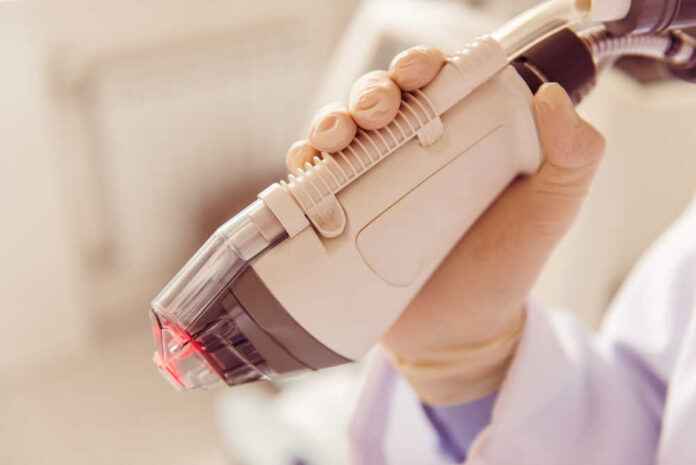
When you get a cut or wound on your skin, the body’s natural response is to create a scab. This helps to protect the wound and prevent infection. The scab will eventually fall off as the wound heals, revealing new skin underneath.
However, sometimes the healing process isn’t perfect. The new skin might not look the same as the surrounding skin, and you may be left with a scar.
Scars can vary in size, shape, and appearance. They might be raised or sunken, itchy or painless, obvious or subtle.
If you’re unhappy with the appearance of your scars, you may be searching for treatments that can help.
One popular treatment option is laser therapy.
How Does Laser Therapy Work?
There are a few different types of laser therapy, but the basic idea is the same. Highly focused beams of light are used to remove the outer layers of damaged skin and stimulate the production of new skin cells.
This process, also called laser resurfacing, may not altogether remove the scar, but it can help flatten it, make it less visible, and potentially improve its texture.
Laser therapy is also used to treat other skin conditions, such as wrinkles, burns, age spots, and sun damage.
Is Laser Therapy Safe?
Laser therapy is generally considered safe when performed by a trained and experienced professional. However, your doctor will likely discourage it if you have light sensitivities or are taking blood-thinning medication.
Laser therapy may cause side effects, such as:
- bleeding
- blistering
- itching
- redness
- scabbing
- swelling
These side effects are temporary and should resolve within a few days or weeks.
If you’re considering laser therapy for your scars, be sure to talk to a dermatologist or other medical professional first. They can help you understand the risks and benefits of this treatment option and determine if it’s right for you.
After Laser Therapy
After your laser therapy treatment, it will take a week or two for your skin to heal.
Your doctor should provide you with aftercare instructions, which may include:
- apply a moisturizer regularly to avoid dry skin
- avoid direct sunlight for 4-6 weeks
- avoid applying makeup to treated areas for a few weeks
- cleanse the area gently with soap and water
- wear loose, comfortable clothing
You’ll likely need more than one treatment session to see results. The number of treatments will depend on the type of laser used, the severity of your scars, and your response to the treatment.
Aftercare is important to help ensure optimal results and minimize the risk of side effects.
If you’re considering laser therapy for your scars, talk to a medical professional to learn more about the risks and benefits of this treatment option.






















